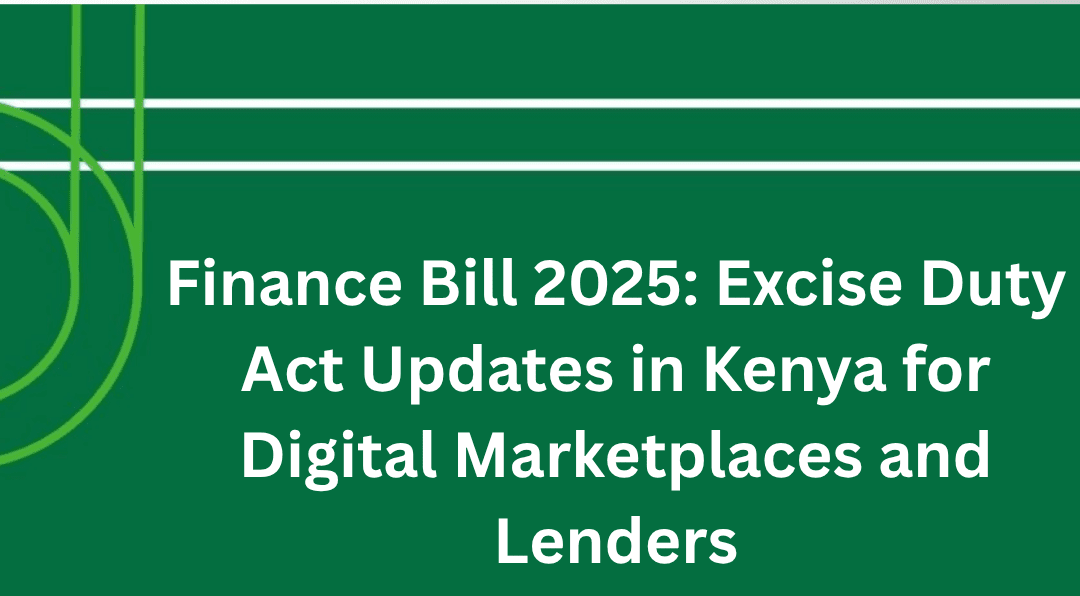Finance Bill 2025: Excise Duty Act Updates in Kenya for Digital Marketplaces and Lenders
The Finance Bill 2025 introduces major updates to the Excise Duty Act, reshaping how Kenya regulates and taxes digital marketplaces, lenders, and non-resident service providers. These changes are particularly relevant for fintechs, tax advisors, and businesses operating in emerging sectors of the economy.
New Definitions for Digital Lenders and Marketplaces
The bill introduces clearer definitions for two key players in Kenya’s digital economy:
- Digital Lender: A person extending credit electronically, excluding licensed banks, microfinance institutions, or SACCOs.
- Digital Marketplace: Any online platform enabling users to sell or provide goods, property, or services to others.
This change brings consistency with the CBK Act and aligns with broader compliance shifts in Kenya’s evolving fintech ecosystem.
Goods Classification Now Aligned with EAC
The Excise Duty Act will now adopt the EAC Customs Union Protocol for goods classification. This move standardizes classification rules and reduces customs disputes.
- Improves regional trade consistency
- Reduces tax misinterpretation at border points
- Supports import/export accuracy
Excise License Approval Now Limited to 14 Days
Until now, there was no timeframe for reviewing license applications. The bill changes that. Once all documents are submitted, the Commissioner must act within 14 days.
- Inital: Submit application
- Day 7: Initial review begins
- Day 14: Approval issued or feedback provided
This promotes efficiency and better aligns tax processing timelines with business realities.
Excise Duty for Non-Resident Digital Providers
The bill proposes extending excise duty to cover non-resident digital service providers, including platforms operating from abroad but serving Kenyan users.
This aligns with VAT policies and helps the KRA’s ability to collect tax revenue from foreign digital services—ensuring fair competition for local providers.
Additional Reference: Turnover Tax
If your business also handles turnover tax or minimal tax compliance, refer to our Turnover Tax Guide for insights on parallel changes.
Summary of Key Proposals
| Area Affected | Proposed Amendment |
|---|---|
| Digital Platforms | Clarified definitions for lenders and marketplaces |
| Customs Classification | Aligned to EAC Protocol to reduce disputes |
| Licensing | Commissioner must process excise license within 14 days |
| Foreign Digital Services | Excise duty extended to non-resident digital suppliers |
FAQs
- Will digital platforms automatically be taxed?
Not immediately. Definitions are clarified first to support later enforcement. - Do I need to reapply for my excise license?
No, but all new applications fall under the 14-day approval window. - How does this affect non-resident businesses?
They must register and comply with excise obligations for services offered in Kenya.







Pingback: Finance Act 2025 - Income Tax Amendments
Pingback: Finance Act 2025 – Key Changes to Miscellaneous Fees, Levies, and Stamp Duty in Kenya
Pingback: Tax Appeals Tribunal Kenya: Key 2021 Amendments
Pingback: Finance Act 2025 - Excise Duty Act Changes - UHY-Kenya
Pingback: Finance Act 2025 – Key Tax Procedures Act